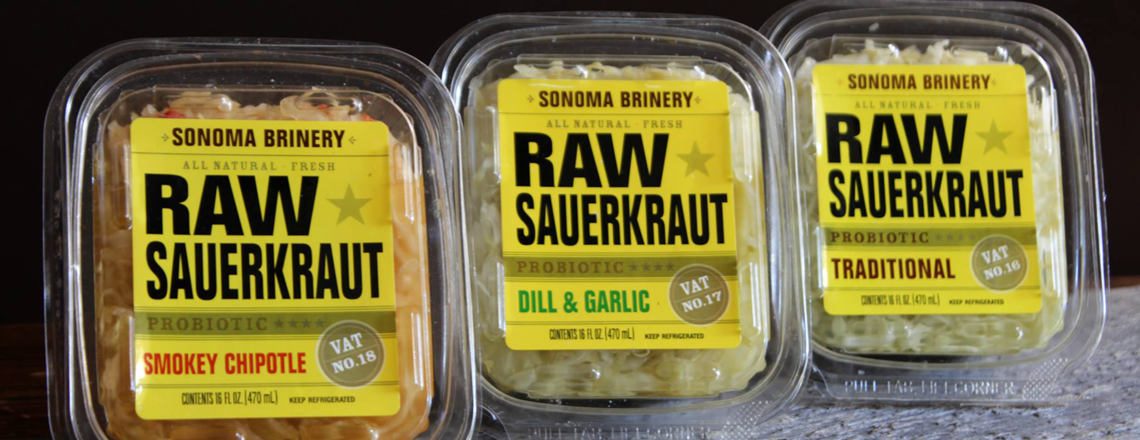News



Healdsburg start-up grows, thanks to Food Business School
Press Democrat | Posted: 12/02/2015
View original article here.
[ssba]
Press Release



Healdsburg start-up grows, thanks to Food Business School
Posted: 12/02/2015
Dave Ehreth, a former Telecom Valley entrepreneur who founded Sonoma Brinery in 2004, was one of about 30 successful food entrepreneurs who signed up for one of the first Food Business School classes offered last spring by the Culinary Institute of America at its Greystone campus in St. Helena. Sonoma Brinery makes handmade pickle and sauerkraut products distributed in 1,200 grocery stores nationwide and had grown from one warehouse to four warehouses in Healdsburg over the past 10 years. Ehreth was ready to take his company to the next level. “Scale Up Your (Authentic) Food Business,” a class taught by Dean Will Rosenzweig and Sarah Soule, Stanford Graduate School of Business professor, provided a rare opportunity for Ehreth and the other entrepreneurs to get feedback on food-centric business issues such as supply lines and fund-raising strategies. “Food brings its own challenges, and they are quite a bit different from other businesses,” said Ehreth, who will move Sonoma Brinery into a new, 10,000-square-foot facility in Healdsburg this spring. “At that time, we were just about to launch our fund-raising campaign, and it gave us time to put together our investor pitch.” It was also a rare opportunity for Ehreth to network with other successful food entrepreneurs, including Molly Best of Thistle Meats and Michael and Jennifer Griffo of Griffo Distillery of Petaluma. “These were one- or two-people companies that grew and grew and grew,” he said. “It’s interesting to talk to people who are truly peers and struggling with you.” Ehreth also was impressed with the aggregate wisdom of Rosenzweig and Soule, who brought their combined common sense and experience to the table as well as a team of real-life food investors who critiqued the students’ pitches. “In tech, by the time you get something into the marketplace, you need to come up with a new version of it,” Ehreth said. “In the food business, it’s exactly the opposite. If you make something and people start to buy it, they want you to make the same thing over and over again.” It’s no accident that the nation’s first food business school popped up in the Bay Area, the epicenter of the nation’s burgeoning food movement, Ehreth said. This is where pioneers such as Alice Waters introduced the nation to the concept of fresh and lively food, grown locally. All of those early food pioneers, including Rosenzweig, fed off each other. “Will grew a very successful business, The Republic of Tea, and for him to share his time and his wealth of knowledge is really important,” Ehreth aid. “Having a food business school here … is only going to add fuel to the economic engine. I suspect the school is really going to get some traction as the word spreads throughout the food industry.”[ssba]



